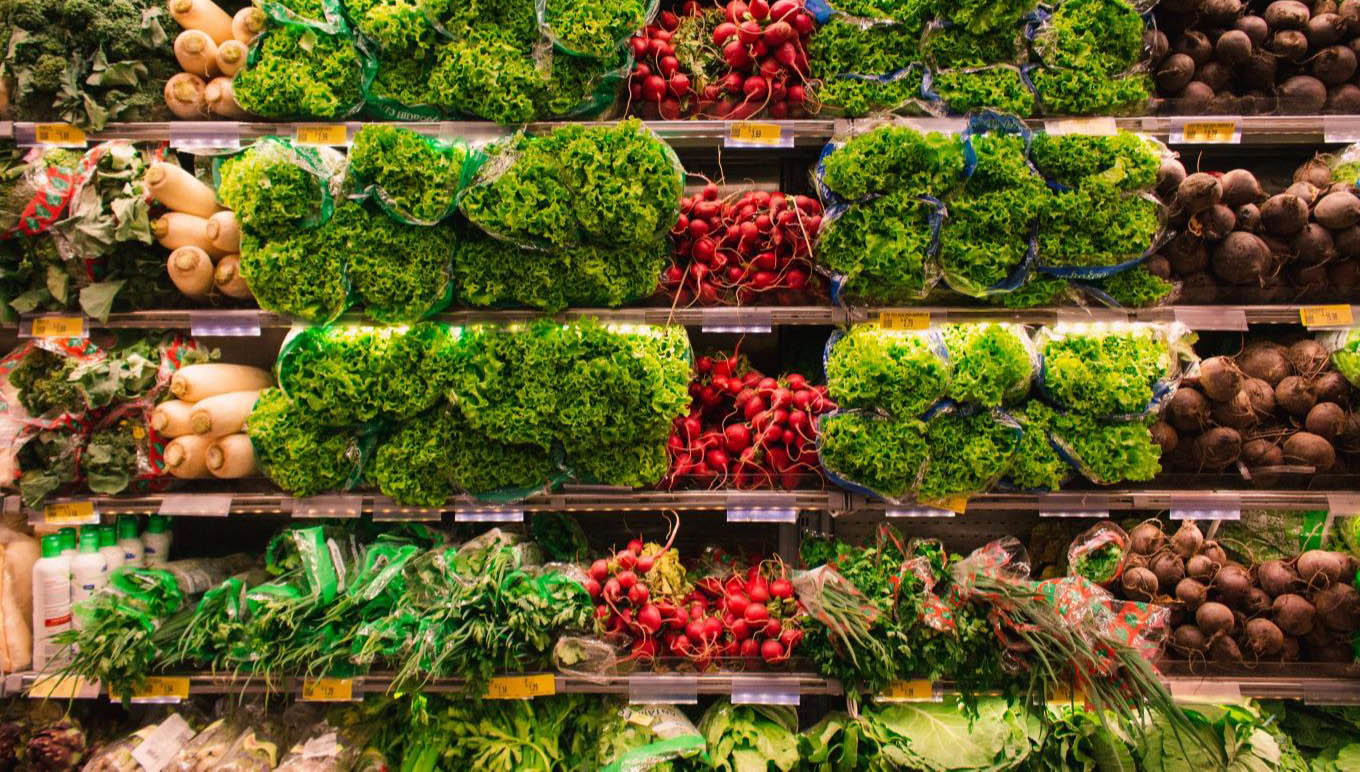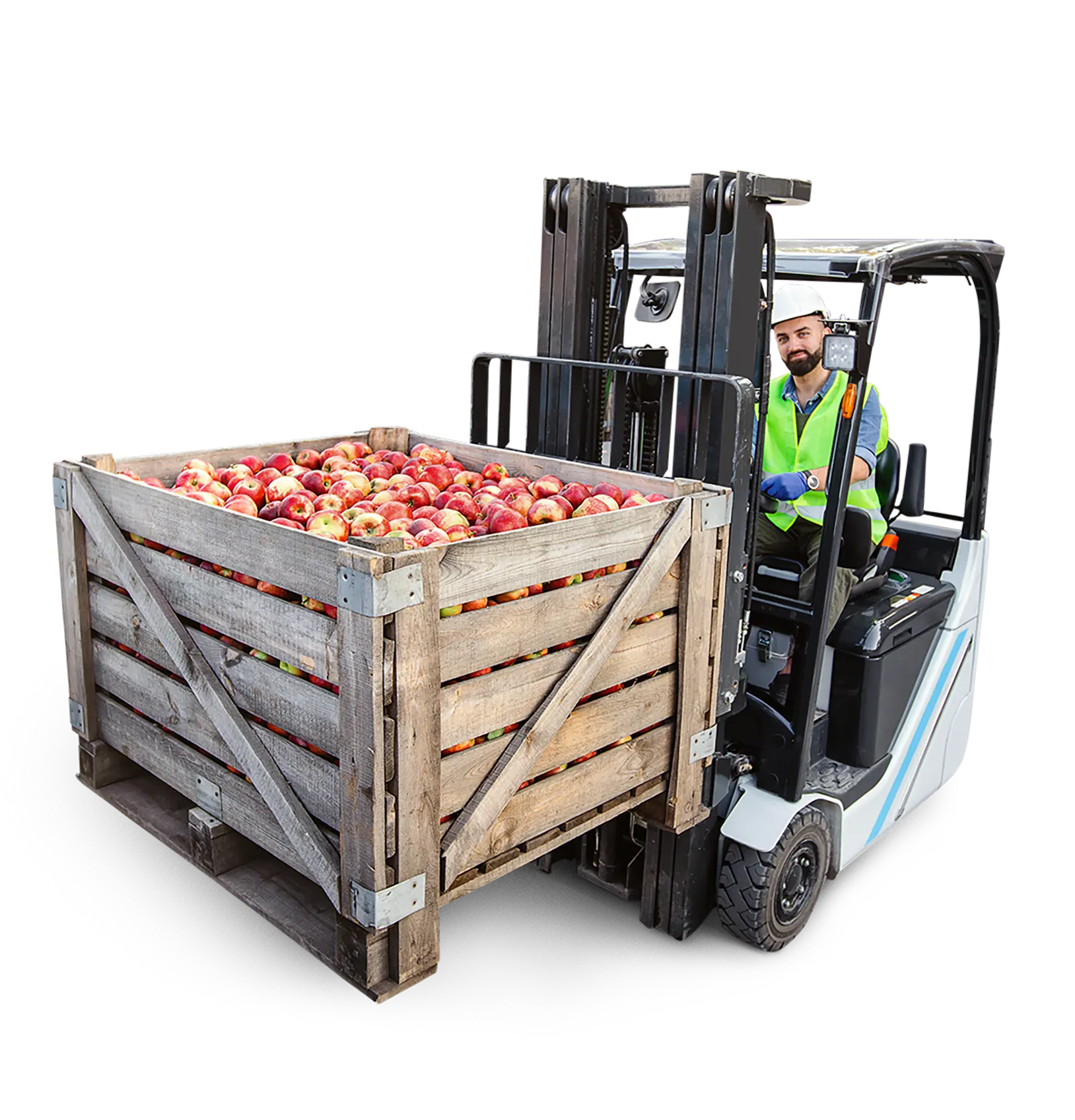5 Ways Food and Beverage Businesses Are Tackling Sustainable Sourcing
5 Ways Food and Beverage Businesses Are Tackling Sustainable Sourcing
5 Ways Food and Beverage Businesses Are Tackling Sustainable Sourcing

Food and beverage businesses like yours are hearing it more and more these days—consumers want more sustainable food and beverage products. A new report from Kerry Group demonstrated that this demand is being felt around the world, as its survey of more than 14,000 individuals across 18 countries found that 49% consider sustainability attributes when making their purchasing decisions.
Considering that 71% of the carbon emissions generated by the food and beverage industry stem from land use at the farm and harvest stages, it would seem that a good place to start your sustainability efforts is at the beginning—of the supply chain, that is. Employing more environmentally friendly cultivation techniques (or sourcing your materials from companies that do) can have considerable positive effects on your company’s impact.
But how do you determine the best ways for your organization—or those that provide your ingredients—to become more sustainable in this earliest phase of the production process? We’ve gathered a list of the most promising strategies and will also shed some light on how purpose-built enterprise resource planning (ERP) solutions streamline the process of implementing them and improve your overall approach.
Identifying the Best Sustainable Sourcing Strategies
Comprehensively evaluating a food and beverage producer’s sustainability requires taking into account practices related to land use, deforestation, animal welfare, waste reduction, packaging, recycling, employee welfare, community impact, water use and much more. As worthwhile as all that might be, it would be a complex and time-consuming exercise and is beyond the scope of this piece.
Instead, let’s take a look at some of the most effective techniques that either your own business or your suppliers can use to be more sustainable in the production and sourcing of your raw materials. We’ll also provide examples of companies that have successfully put these strategies into practice for more environmentally-friendly results.
1. Using Emergent Farming Techniques
Innovative new farming techniques like hydroponics and vertical farming have been proven to be more efficient and sustainable than traditional agriculture. For example, hydroponic growing methods can produce up to 240 times the yield of alternatives while consuming 98% less water, and one square acre of vertical farms can be used to grow what would require 10 to 20 acres of farmland.
UK-based foodservice leader Compass Group has partnered with Farmshelf, an indoor hydroponic farm manufacturer, to expand its hydroponic farm footprint with an eye toward cutting out 15,000 pounds of food waste and saving 600,000 gallons of water per year. Meanwhile, indoor vertical farming business Plenty has secured a $400 million investment from Walmart to deliver fresh produce to their stores.
2. Sourcing Materials Locally
Purchasing your ingredients from local providers means that the commodities have less distance to travel in order to reach your facilities, cutting back on mileage and fuel consumption to reduce your supply chain’s carbon footprint. It also saves you money, which is a huge consideration given that North American food and beverage businesses spend more than $1 billion annually on logistics alone.
Smithfield Grain, a subsidiary of Smithfield Foods, is dedicated to locally sourcing the more than 150 million bushels of corn, soybeans, wheat and sorghum that the business buys on an annual basis. Niman Ranch—which is now owned by Perdue Farms—built its name on locally sourced meat, creating a network of more than 720 private ranches on the West Coast for its pork, beef and lamb offerings.
3. Embracing Alternative Energy
Alternative energy sources like wind, solar and hydroelectric power have the obvious benefit of drastically reducing carbon emissions from the burning of conventional fossil fuels. They’re also growing in availability and popularity, with renewables making up 29% of electricity generation worldwide in 2020.
Goya Foods is a great example of a large enterprise making waves with its move to alternative energy, as the organization is one of the top corporate solar users in the U.S. and recently completed a facility equipped with more than 6,500 solar panels to generate 70% of the building’s energy supply. HimalaSalt’s facility is powered entirely by solar energy, helping to sequester more than 16,000 pounds of carbon annually.
4. Espouse Regenerative Agriculture
Taking care of the land and soil to preserve it for future use is another important component of sustainable sourcing of materials for food and beverage products. Regenerative agriculture—which is built on a farming style that nourishes the earth by prioritizing soil health, reducing reliance on synthetic inputs and nurturing local communities—is a concept to champion if your business engages in cultivation, and a practice to look for in suppliers if you purchase your agricultural commodities.
French multinational food product corporation Danone is one of the leaders on this front, as its Soil Health Program has prevented the erosion of more than 337,000 tons of soil and saving $3.3 million in costs for farmers that support its Oikos, Two Good and Horizon Organic labels. Additionally, the initiative has led to a 119,000-metric-ton reduction in carbon emissions and helped conserve more than 1,700 acres of waterways, buffer lands, forest and wetlands.
5. Exploring Opportunities to Repurpose Byproducts
While the saying “one man’s trash is another man’s treasure” might not seem applicable at all in the food and beverage world, many brands are discovering that they can indeed repurpose the byproducts of their own processes or those of other businesses in order to source their materials more sustainably. Refed, an organization that tracks food waste, estimates that donated materials can divert more than 100,000 tons of what would otherwise go to the dump, generating $285 million in economic value.
For example, baking mix and cookie manufacturer Renewal Mill dries okara—the pulp created during the process of making soy milk—and mills it into a nutritious, grain-free flour. There’s also The White Moustache, a yogurt producer, that uses the whey that is left over in its manufacturing processes to create probiotic beverages and frozen pops.
Supplementing Sustainable Sourcing with Technology
The sustainable sourcing methods included above are all great ideas to consider as your company strives to do right by the planet and future generations. To get optimal results and boost your operations’ flexibility and efficiency in concert with any of these techniques that you or your suppliers employ, you should look to food industry-specific ERP software.
That’s in part because these solutions give you full supply chain visibility, so you know where your materials are coming from and how long they’re in transit, helping you to assess your current sourcing strategy for ways to improve. Advanced systems, like our industry-specific food and beverage solution, Aptean Food & Beverage ERP, also provide a dedicated supplier portal, which makes introducing new partners easier should you choose to make a switch to a more sustainable option.
What’s more, ERP platforms help you get the most out of the raw materials you purchase with comprehensive inventory management features that update your stock levels in real time and convey important freshness and expiration data clearly. That ensures that you’re not wasting the ingredients that you’ve already procured, boosting the overall sustainability of your sourcing strategy.
Finally, ERP software for food and beverage businesses is designed to collect and maintain all of your data as a “single source of truth” and tends to come with powerful analytics capabilities that can assist in determining where your efficiency losses and causes of waste are occurring so that they can be rectified. That’s just another way that these solutions can make your operations leaner and greener.
Our own offering not only recently received a prestigious recognition from Frost and Sullivan—the 2022 Product Leadership Award in North American ERP Software for the Food and Beverage Industry—but is also packed with unique, industry-specific technology built on the Microsoft Dynamics 365 Business Central platform. We also offer lightweight and agile cloud deployments, which keep up-front costs to a minimum while maximizing your security and system uptime.
So, if you’re ready to hear more about how Aptean Food & Beverage ERP can work in tandem with your sustainable sourcing strategy for better results, contact us today. You can also request a personalized demo to see the platform for yourself.
Prioritizing modernization, optimization and a sound strategy is necessary for success in the food and beverage industry. Increase operational agility in a continually changing (and often unpredictable) manufacturing landscape.



 Jack Payne | Vice President, Product Management & Solutions Consulting
Jack Payne | Vice President, Product Management & Solutions Consulting